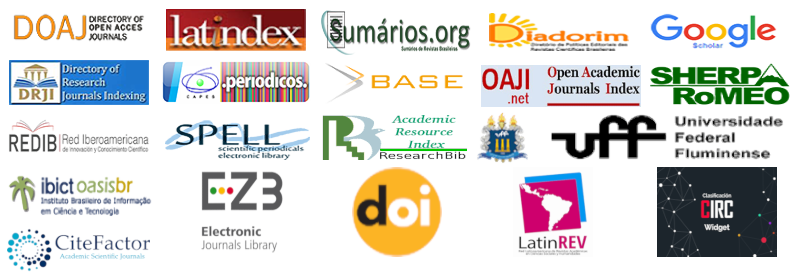Diretrizes para a realização da pesquisa-ação: da estrutura às abordagens que impactam sua credibilidade
DOI:
https://doi.org/10.20401/rasi.10.1.898Palavras-chave:
Pesquisa-Ação, Características da Pesquisa-Ação, Estruturas da Pesquisa-Ação, Ciclos da Pesquisa-AçãoDownloads
Referências
Athanasopoulou, A., & De Reuver, M. (2020). How do business model tools facilitate business model exploration? Evidence from action research. Electron Markets, 30, 495–508. https://doi.org/10.1007/s12525-020-00418-3
Balthu, K. C., & Clegg, B. (2021). Improving professional service operations: action research in a law firm. International Journal of Operations & Production Management, 41(6), 805-829. https://doi.org/10.1108/IJOPM-10-2020-0696
Baskerville, R., & Wood-Harper, A. (1998). Diversity in information systems action research methods. European Journal of Information Systems, 7, 90–107. https://doi.org/10.1057/palgrave.ejis.3000298
Coghlan, D. (2011). Action Research: Exploring Perspectives on a Philosophy of Practical Knowing. Academy of Management Annals, 5(1), 53-87. https://doi.org/10.5465/19416520.2011.571520.
Coughlan, P., & Coghlan, D. (2002). Action research for operations management. International Journal of Operations & Production Management, 22(2), 220-240. https://doi.org/10.1108/01443570210417515
De Oliveira, U. R., Dias, G. C., & Fernandes, V. A. (2023). Evaluation of a conceptual model of supply chain risk management to import/export process of an automotive industry: an action research approach. Operations Management Research. https://doi.org/10.1007/s12063-023-00422-8
Hassan, M. G., Akanmu, M. D., Ponniah, P., Sharif, K. I. M., Belal, H. M., & Othman, A. (2023). A framework for implementing a Supplier Kanban System through an action research methodology. Benchmarking: An International Journal, 30(5), 1562-1587. https://doi.org/10.1108/BIJ-12-2020-0656
Hult, M., & Lennung, S. (1980). Towards a definition of action research: a note and bibliography. Journal of Management Studies, 17(2), 241-250. https://doi.org/10.1111/j.1467-6486.1980.tb00087.x
Huxham, C., & Vangen, S. (2003). Researching Organizational Practice through Action Research: Case Studies and Design Choices. Organizational Research Methods, 6(3), 383-403. https://doi.org/10.1177/1094428103254.
Lindgren, R., Henfridsson, O., & Schultze, U. (2004). Design Principles for Competence Management Systems: A Synthesis of an Action Research Study. MIS Quarterly, 28(3), 435-472. Disponível em: https://www.jstor.org/stable/25148646
Näslund, D., Kale, R., & Paulraj, A. (2010). Action research in supply chain management—a framework for relevant and rigorous research. Journal of Business Logistics, 31(2), 331-355. https://doi.org/10.1002/j.2158-1592.2010.tb00155.x
Puhakainen, P., 7 Siponen, M. (2010). Improving Employees' Compliance Through Information Systems Security Training: An Action Research Study. MIS Quarterly, 34(4), 757-778. https://doi.org/10.2307/25750704
Sundarakani, B., Ajaykumar, A., & Gunasekaran, A. (2021). Big data driven supply chain design and applications for blockchain: An action research using case study approach. Omega, 102, 102452. https://doi.org/10.1016/j.omega.2021.102452
Susman, G. I., & Evered, R. D. (1978). An Assessment of the Scientific Merits of Action Research. Administrative Science Quarterly, 23(4), 582-603. https://doi.org/10.2307/2392581
Westbrook, R. (1995). Action research: a new paradigm for research in production and operations management. International Journal of Operations & Production Management, 15(12), 6-20. https://doi.org/10.1108/01443579510104466.
Downloads
Publicado
Edição
Seção
Licença
Copyright (c) 2024 Revista de Administração, Sociedade e Inovação

Este trabalho está licenciado sob uma licença Creative Commons Attribution 4.0 International License.
A RASI, de acordo com a Lei nº 9.610, de 19.02.98 que altera, atualiza e consolida a legislação sobre direitos autorais e dá outras providências, adota as seguintes condições da Cessão de Direitos Autorais:
- A Revista de Administração Sociedade e Inovação (RASI) mantém, com a cessão dos direitos autorais, a posse dos direitos sobre os conteúdos por ela publicados;
- O autor retém seus direitos morais do conteúdo, incluindo o direito de ser identificado como autor sempre que o conteúdo for publicado;
- Apesar da atribuição dos direitos autorais o autor retém o direito de reutilizar o material em coleções futuras de seu próprio trabalho sem ônus. Os reconhecimentos da publicação anterior na RASI são as únicas exigências em tais casos;
- O autor pode fazer fotocópias do conteúdo, ou distribuí-lo por meio de correio eletrônico ou fax, desde que destinadas às suas próprias aulas e com finalidade de atender objetivos de pesquisa, sob a condição de que: (a) tais cópias não sejam revendidas e (b) referência a fonte original da publicação e o nome da RASI estejam indicados claramente em todas as cópias feitas do material.











